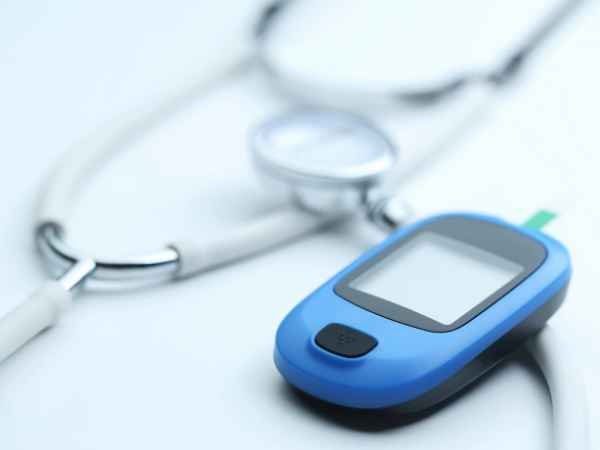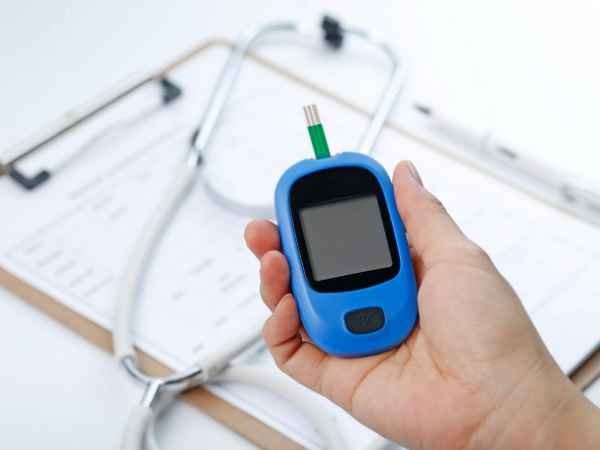Unlock the Secrets to Managing Diabetes Without Medication – Start Now!

Wondering How To Manage Diabetes at home, let us understand how we can achieve it. Diabetes is a disease where blood sugar levels rise abnormally high due to insufficient insulin production. Insulin is produced naturally by our bodies and helps convert glucose (blood sugar) into glycogen (stored carbohydrate). When we eat food containing carbs, they break down to become glucose and enter the bloodstream. Glucose then goes throughout the body until it reaches cells called beta-cells located near the pancreas. Once inside these cells, glucose triggers a chemical reaction that releases insulin, which causes the beta-cell to produce more insulin.
The Importance Of Managing Diabetes On Time
Diabetes affects over 30 million people in America alone. It is estimated that 5% of Americans have some type of diabetes. Type 2 accounts for 90-95% of cases and is what we want to focus on here. As our population increases, the number of diabetics will only increase. We know that diabetes is a disease caused by insulin insufficiency. In diabetes, the body does not produce enough insulin or the cells do not respond properly to insulin. When this happens, glucose (blood sugar) builds up in the bloodstream and damages organs and nerves. If left untreated, high blood sugar can lead to serious complications including heart attack, stroke, kidney failure, blindness, amputations, nerve damage, and death.
Why is managing diabetes important?

Managing diabetes means keeping blood sugar at normal ranges. Blood sugar levels above 180 mg/dl (10 mmol/L) indicate hyperglycemia. Levels below 70 mg/dl (3.9 mmol/L) are considered hypoglycemic. Hyperglycemia and hypoglycemia both cause long-term damage to the eyes, kidneys, nerves, skin, and cardiovascular system. High blood sugar levels can also cause ketoacidosis, which makes urine smell fruity. Low blood sugar levels can leave you feeling weak, dizzy, hungry, irritable, and shaky.
People with diabetes are twice as likely to suffer a major illness or injury than those without the disease. Diabetic retinopathy is a complication of diabetes that can lead to loss of vision. Kidney disease is common among people with diabetes, and diabetic neuropathy can result in pain, numbness, tingling, and weakness in the legs and feet.
The American Diabetes Association recommends that everyone with diabetes eat a balanced diet low in saturated fats and simple carbohydrates. Exercise regularly. Keep track of food intake and blood sugar levels using a log book, home monitoring kits, or online tools.
Control Your Diabetes with These Simple Home Solutions!

- Eat a balanced diet: Diabetes is often caused by eating foods high in sugar, fat, and simple carbs. These types of foods cause blood glucose levels to rise rapidly after meals. Eating a healthy diet with plenty of fruits and vegetables helps keep blood glucose levels steady. Avoiding sugary drinks, processed food, and fried foods. Also, try not to skip breakfast if possible.
- Exercise regularly: Exercise helps regulate insulin production and keeps blood sugar at normal levels. Regular exercise also boosts metabolism and burns calories. Try walking daily for 30 minutes, lifting weights, or participating in any activity that gets you moving.
- Monitor your weight: Overweight people have a higher risk of developing type 2 diabetes than those who maintain their weight. If you’re overweight, talk to your doctor about starting a program called “lifestyle change” to help control your weight. Losing just 5-10% of your body weight may reduce your chances of developing diabetes by 50%.
- Reduce stress: Stress can increase blood pressure and make it harder to handle sugar. Stress management techniques like meditation and deep breathing can improve mental clarity and lower blood pressure.
- Get regular checkups: Regular medical exams can monitor changes in your blood sugar level. Your doctor can also test for other conditions related to diabetes, including kidney disease, nerve damage, heart problems, and gum disease.
- Manage your medications: If you already take prescription drugs to treat diabetes, ask your doctor how they work together. You may need to adjust dosages or switch medications if you experience side effects.
- Watch out for warning signs: Watch for symptoms of low blood sugar (hypoglycemia) or high blood sugar (hyperglycemia). Symptoms include headache, sweating, hunger, nausea, dizziness, irritability, confusion, rapid heartbeat, and seizures.
How To Manage Diabetes With Insulin Pump?

Insulin pumps are devices that deliver insulin directly into the body via a small tube inserted under the skin. These devices have been around since the 1950s and were originally designed to treat people who had type 1 diabetes. Today they are commonly used by diabetics who need to administer their own insulin. Use Insulin pumps that work best for you. If you decide to buy a pump, make sure you go to a reputable dealer that sells only approved models.
One such pump that you can go to if you are wondering how to manage diabetes is INSUL by AgVa. It is one of the most Affordable insulin pumps. Insulin Pumps are not only used to Measure Blood Sugar Levels but also provide valuable feedback regarding the Food Consumed by the Patient. With the help of such an App, one can Easily Monitor his/Her Diet and Keep Tabs on Calorie Consumption. Such Apps Also Allow Patients to Set Personal Goals and Get Instant Notifications Whenever They Reach Them. One Can also Purchase the Required Equipment Through the App itself.
Learn how to set up your pump correctly. There are some things you need to know before you start pumping. -Find a good dietitian who specializes in diabetes nutrition. A registered dietitian (RD) can help you create a meal plan based on your daily activity levels, blood sugar readings, and food preferences. Find people online who share your same interests and concerns.
Always check yourself first. Don’t let anyone else give you advice unless they’ve done their own research and understand how things work.
Do what feels right for you. Don’t feel pressured to follow any particular regimen or routine. Make sure you always have enough supplies including needles, lancets, test strips, etc. Always carry a backup supply of insulin and glucose testing equipment just in case something happens.
Be patient. Managing diabetes takes time. It may take several weeks to find the perfect combination of foods, medications, activities, and lifestyle choices to ensure optimal results. Be prepared to try different combinations until you find what works best for you.
Know your limitations. Your body can handle many different types of physical activity. But if you push yourself too hard, you could end up with low blood sugar. Don’t forget to enjoy life! When you’re managing diabetes, you’ll likely have a lot of extra responsibilities. That doesn’t mean you should neglect to do the things you love. Try to get outside and exercise whenever possible. Take walks, hikes, bicycle rides, kayaking trips, skiing, swimming, and anything else that gets you moving while keeping your blood sugar stable.
Summing Up On How To Manage Diabetes,
Diabetes requires lifelong management. You should work closely with your doctor to find the best treatment plan for you. Your doctor might recommend changes in diet, exercise, medications, and sometimes insulin therapy. Many patients use oral medication to lower blood sugar levels. Other treatments involve controlling blood pressure, cholesterol, and triglycerides. Lifestyle modifications can help prevent or delay the onset of diabetes.